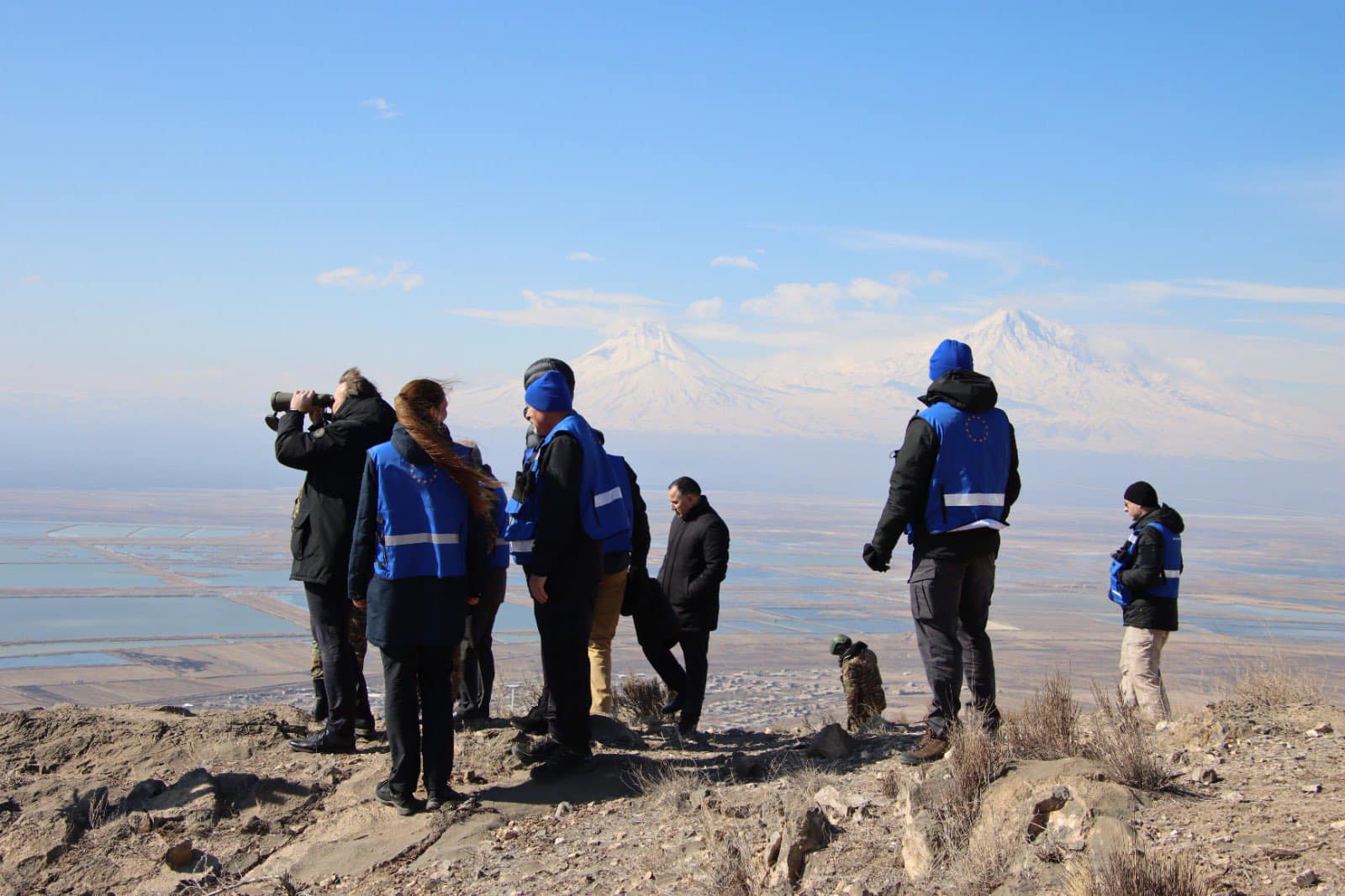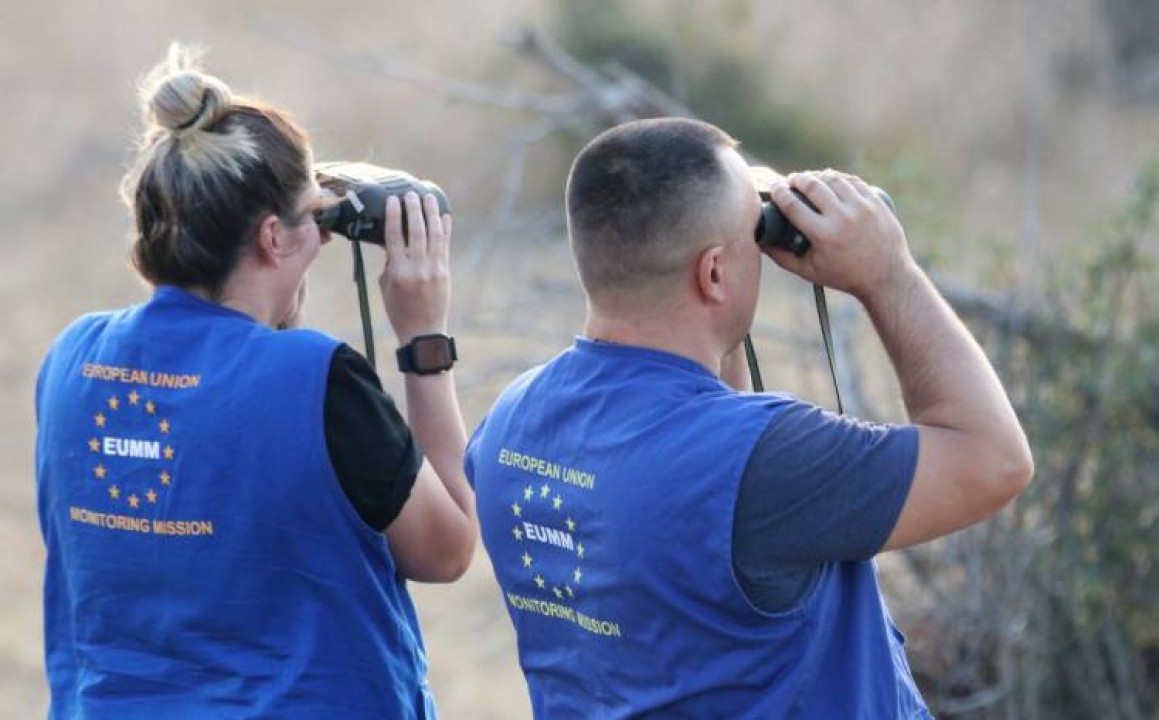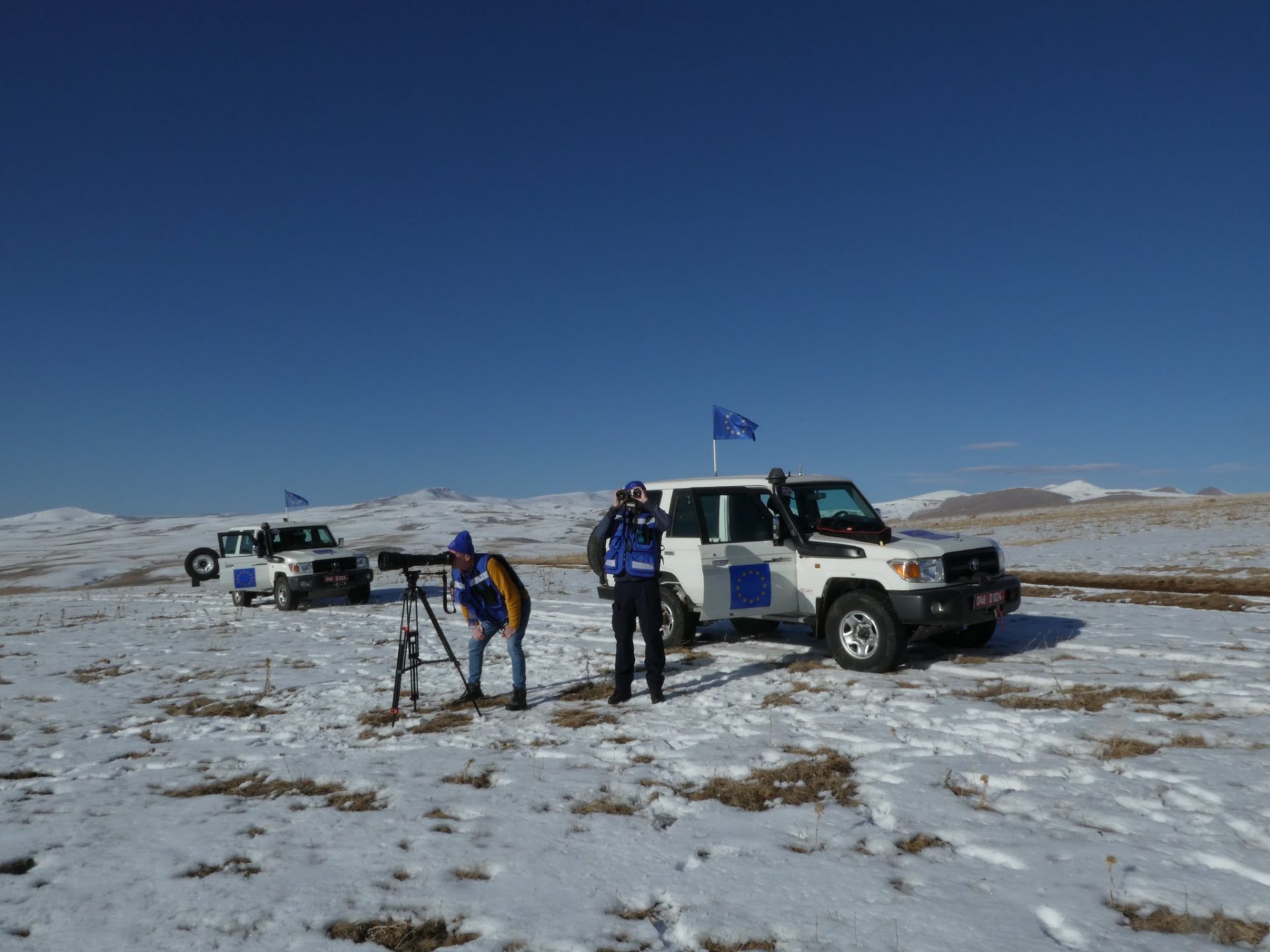Opinion: Armenia faces challenge if EU observers leave without security guarantees
Will EU mission in Armenia be extended
The EU observer mission in Armenia is set to conclude in February 2025. Approved in January 2023, the two-year deployment placed civilian monitors on Armenia’s border with Azerbaijan. Armenian authorities have consistently stated that the observers’ presence helps stabilize the volatile border situation, but it remains unclear whether their mandate will be extended.
‘No final decision has been made on extending the mission, but we are working on it. Discussions are ongoing with Armenian authorities,’ Vassilis Maragos, head of the EU delegation in Armenia, told journalists, without confirming whether Yerevan has formally requested an extension.
The issue has sparked public concern and has been widely debated in Armenian social media for some time, though the Armenian government has yet to clarify its position.
Discussions intensified after Azerbaijan revealed previously undisclosed terms of a still-unresolved peace agreement with Armenia. The leak, shared by Azerbaijani expert Farid Shafiyev, head of a think tank funded by the Aliyev administration, highlighted a contentious provision: the absence of foreign forces on the Armenia-Azerbaijan border.
Political analyst Robert Ghevondyan interprets this as Azerbaijan’s call for the EU observer mission to leave the border. He warns that without guarantees to replace the mission, Armenia could face significant risks: “Azerbaijan could resume military provocations at any moment.”
- EU mission expands to contain Baku’s provocations – Armenian political scientist
- EU border monitors in Armenia granted diplomatic status
- “The EU mission in Armenia is not directed against anyone” – Toivo Klaar
In February 2023, 100 civilian EU observers arrived in Armenia. Over the following months, their numbers doubled, and the mission established several additional offices. Armenian political analysts explain that the expansion of the mission and its coverage aims to ‘curb Baku’s provocations.’
Azerbaijan has sharply criticized the EU mission since its deployment, emphasizing that it was stationed along the border without Azerbaijan’s consent. Recently, new accusations have emerged, claiming that ‘the observers are positioned on the Azerbaijan border to collect intelligence data.
Political analyst Robert Ghevondyan
Political analyst Robert Ghevondyan believes the delay in extending the EU observer mission stems from ongoing Armenia-Azerbaijan negotiations. He notes that discussions around the peace agreement include a contentious clause, revealed in leaked information, about excluding third-party forces from the Armenia-Azerbaijan border.
“Does this mean no third-party armed forces, or no civilian forces either? I assume this issue is still under discussion,” he says.
Ghevondyan considers it unlikely that Yerevan and Baku will finalize a peace agreement by February 2025. As a result, he sees the extension of the EU civilian mission as probable in the near future.
He also suggests that Yerevan might be exploring alternative formats to retain the EU mission in Armenia.
He speculates that the mission could operate further from the border, continuing its work only in border-area centers, or that its functions could be adjusted.
“The mission’s role could be reformulated. For instance, it might be tasked with monitoring the implementation of the Armenia-Azerbaijan agreement,” he told JAMnews.
Ghevondyan believes that any changes in the mission’s functions will depend on the priorities of the moment and the nature of the agreement reached between Armenia and the EU.
Ghevondyan emphasizes that the withdrawal of EU observers from the border would only be logical if Armenia is provided with alternative security guarantees.
He highlights measures such as:
- Deploying UN international peacekeepers,
- The presence of UN observers,
- An agreement between Armenia and Azerbaijan to mutually withdraw their forces 5–10 km from the borderline.
“If Armenia agrees to abandon the EU mission without obtaining guarantees or defining their implementation, the withdrawal of EU observers could become a challenge. In that case, Azerbaijan could provoke the situation again at any moment,” the political analyst asserts.
To ease tensions, the EU spokesperson for foreign affairs and security policy, Peter Stano, stated last month that the EU mission is open to cooperating with Baku. When asked how likely it is that Azerbaijan would agree to such cooperation, Ghevondyan responded:
“I don’t think it’s possible. At Russia’s insistence, Azerbaijan is doing everything it can to ensure EU observers leave the border. I think it’s absolutely unrealistic for Azerbaijan to agree to cooperate with the observers in this situation.”
Will EU mission in Armenia be extended





















